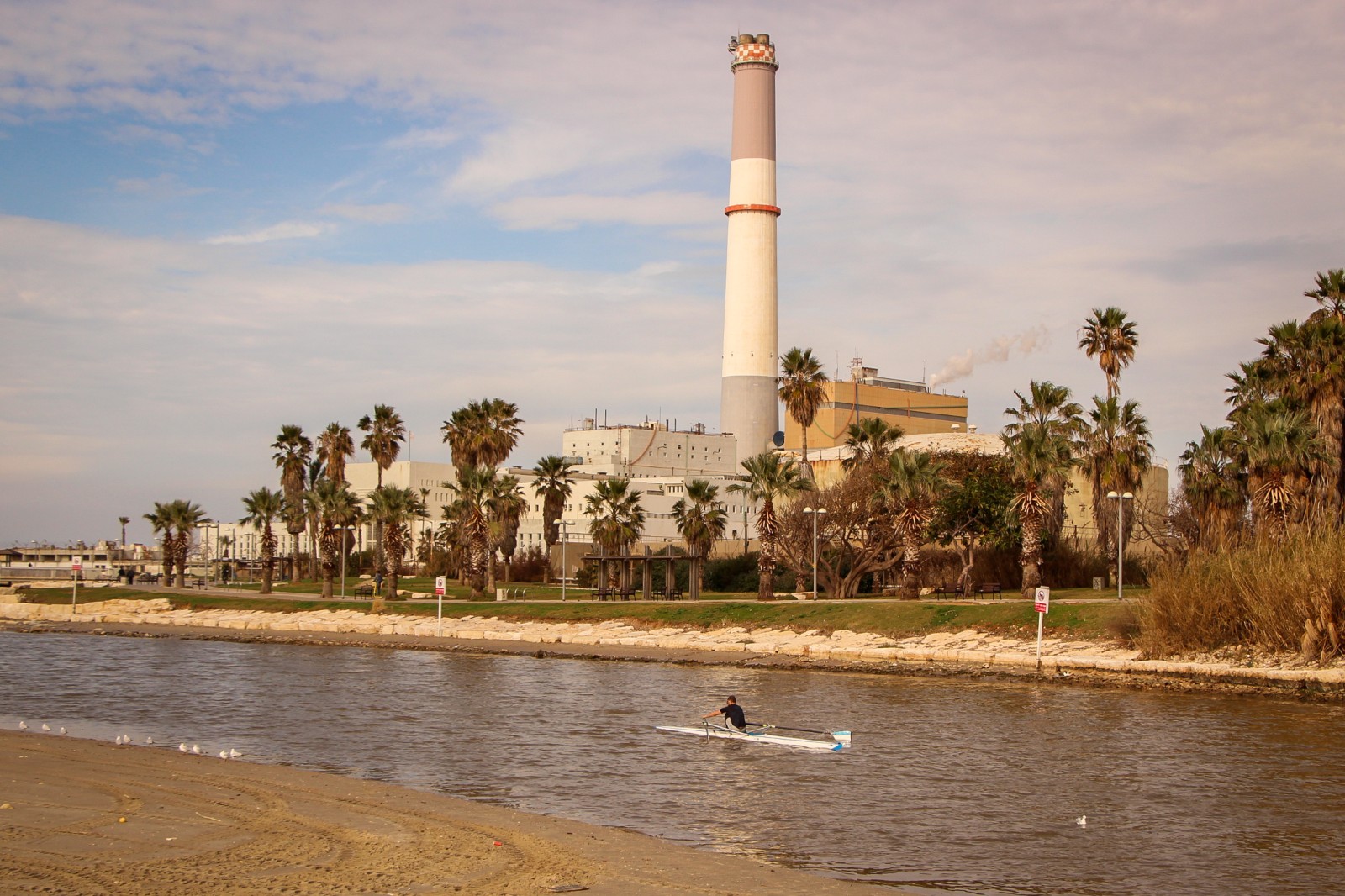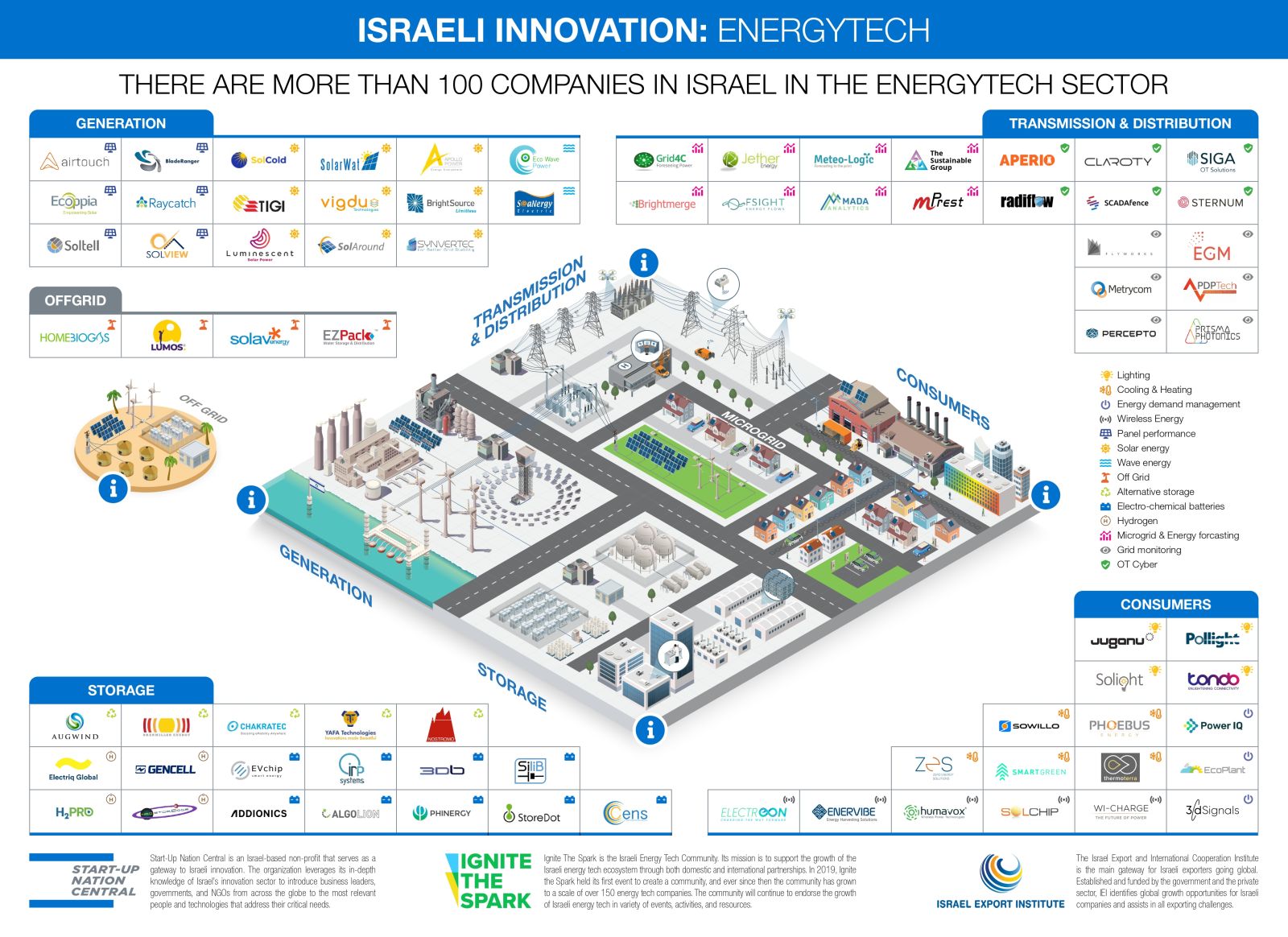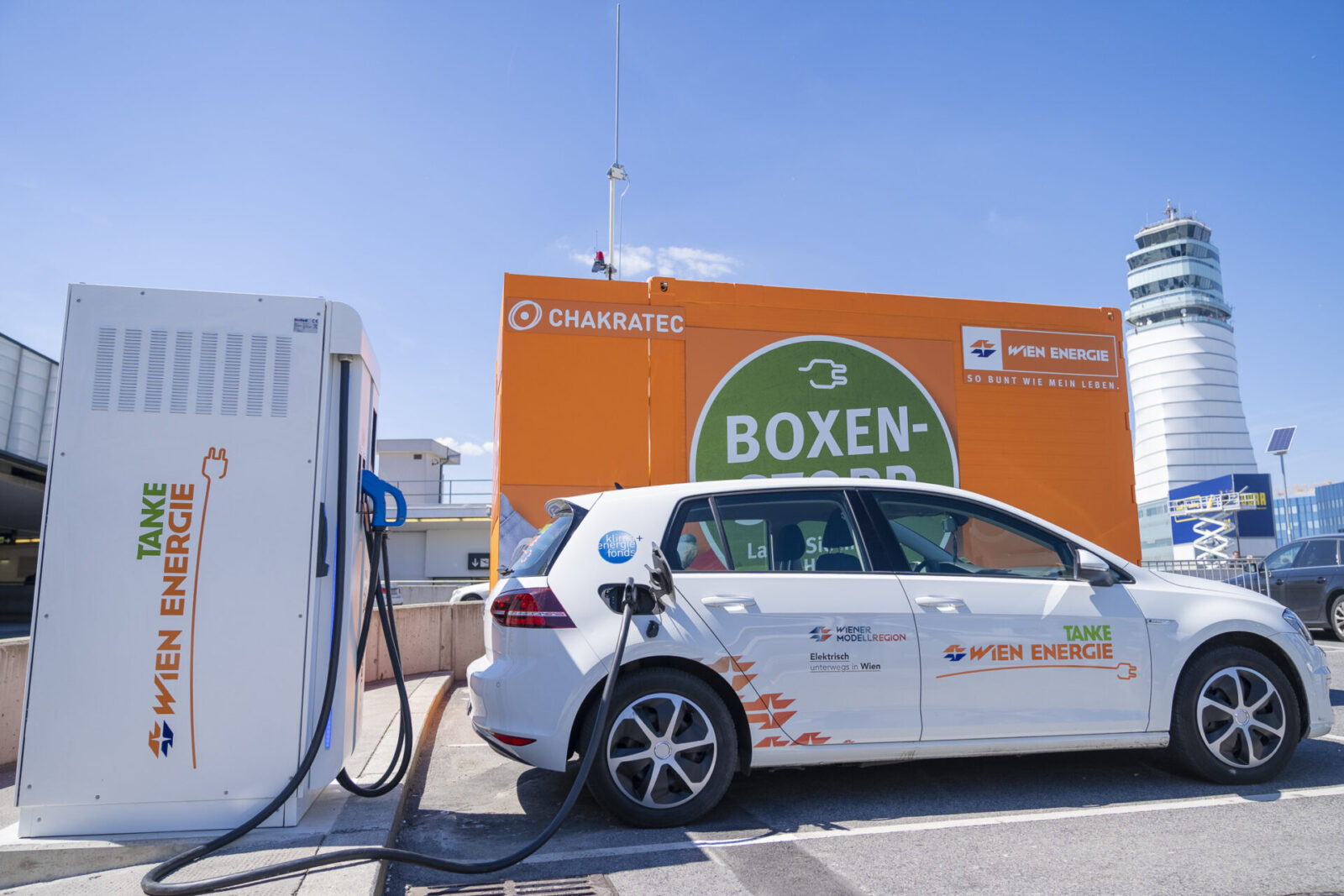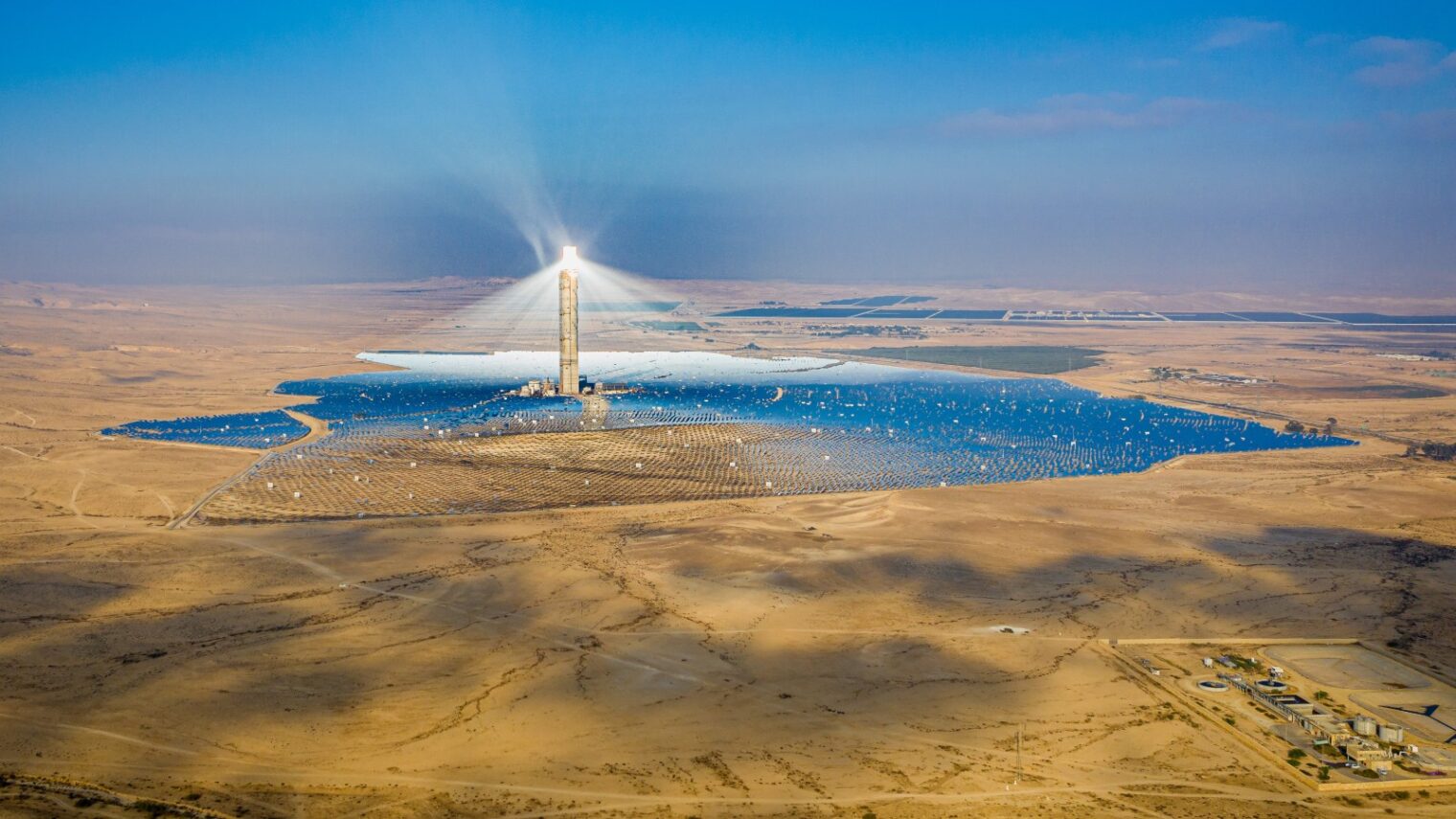The Startup Nation developed along the simple idea that Israel was never going to be a powerhouse as an exporter of fuel or other natural resources. We joked that the Jews were given a barren land, while our neighbors were given an abundance of natural energy.
This allowed Israel to focus on developing its human capital, the only reliable type of transferable capital in today’s Covid tech world.
This “curse” of a barren land became a blessing in disguise, and Israeli leaders understood that as they laid the foundation for the Startup Nation.
In what looks to be a net positive for the economy, the Leviathan natural gas field in the eastern Mediterranean is helping Israel cement its status as an energy center. Offshore gas was discovered 10 years ago and will continue to play a key role both economically and geopolitically in the Startup Nation.
But gas is only part of the energy picture.
A fast-emerging energy-tech or climate-tech ecosystem is blooming alongside offshore gas exploration. Sustainable sources of energy such as wind and sun have been in development for years and are becoming more relevant today for a variety of factors, primarily economic.
We would be wise to follow the path of our newest partners for peace, the UAE and Bahrain, in how they diversify their natural resources and use technology to develop new ones.
Why now?
Though wind and solar energy have been supported by governments in places like Europe, widespread adoption has not reached a critical mass.
Our World in Data reports that “in 2019, around 11% of global primary energy came from renewable technologies.”
Where enterprising Israeli entrepreneurs see a challenge and a need, they seek to address it.
The driving factor in the adoption of new energy sources is price; using these sources is becoming increasingly affordable. For all the good intentions — many startups are mission driven — these sources need to be economically viable.
When it comes to energy tech or climate tech, renewable energy has become cheaper, and natural sources such as gas can be a secondary source. Having a backup is important for an energy island like Israel, so that the country does not need to rely on sources outside our borders.

Old paradigms are being shattered as costs plummet, particularly for energy storage. When the sun goes down and the wind doesn’t blow, there still needs to be a way to store this energy. Many storage companies in Israel have been working to solve this problem.
Grids have been unprepared for the high volume. Distributed grids and deploying local networks, and the trend of micro-grids will continue to proliferate.
Other trends such as electric vehicles, and in Israel’s case, excellence in mobility, are also contributing to the drive for new energy sources. Nonetheless, this trend is still developing in Israel as many local VCs do not fully understand energy and are slow to invest in this space.
“Covid-19 is an amazing gift to better understand the important and critical things of our lives. It is an important wake-up call for everyone.”
This is not just lip service but has driven a lot of millennials and GenZers’ daily behavior.
Life-changing situations out of our control, such as Covid and the wildfires in California, have caused a tipping point in many people’s minds, and we realize how we consume energy needs to change.
Edan Kaplansky, director of business development at the Arava Power Company, reiterates this point.
“Global climate change, and the increased awareness and willingness to act to mitigate its effects, continue to play a key role in driving innovation and adoption of decarbonization technologies. Events such as the California wildfires and the Covid-19 pandemic have certainly brought such concerns to a head, while simultaneously underscoring the need for energy security on both local and national levels.”
Community first
Grassroots organizations such as Ignite the Spark and DeserTech are helping build community around these challenges. Engaging the local ecosystem helps raise awareness.
Ignite the Spark is a community of entrepreneurs, startups, utilities, regulators, investors, and academia focused on endorsing Israeli innovation in energy.
Cody Norton, one of the founders of the organization, states: “The mission of Ignite the Spark: the Israeli Energy Tech Community is to support the growth of the Israeli energy tech ecosystem through both domestic and international partnerships. In 2019, Ignite the Spark held its first event to create the community, and it has grown to over 150 energy tech companies. We have launched the first comprehensive and interactive Israeli Energy Tech Ecosystem Map.”

Sivan Cohen Shachar runs the DeserTech community, a joint initiative of the Merage Foundation Israel and the Israel Innovation Institute.
DeserTech is part of the Innovation Center for Climate Change in Beersheva’s Innovation District supported by the Israeli Ministry of Environment Protection in partnership with Ben Gurion University, the municipality and Soroka Medical Center.
Shachar says the Merage Foundation Israel is holding a competition for startups at any stage involved in developing water, agriculture, energy or infrastructure solutions for sustainable life and environment in the desert.
US-Israel bilateral organizations such as the BIRD Foundation have been active in investing to de-risk these technologies and strengthen the US-Israel relationship in energy, among other fields.
Energy startups
Innovation is coming from startups focused on the generation of energy, transmission and distribution, and storage. Storage is what helps make these new energy sources realistic options, and Israel has an abundance of storage-related startups.
An example is Chakratec, whose solution stores electricity as kinetic energy in a fast-rotating flywheel. The flywheel is a sustainable and reusable system, without toxic or polluting chemical batteries.
According to CEO Ilan Ben David, “Utilizing our proprietary Kinetic Power Booster technology, Chakratec facilitates the deployment of fast and ultra-fast EV charging stations anywhere, including locations with a weak grid.”

StoreDot is another startup in the storage space that is helping drone startups such as Percepto and Airobotics fly more efficiently.
Percepto appears on the Ignite the Spark energy tech map in the area of transmission and distribution of energy. This is a good example of how different startups are cooperating. StoreDot has also received investment from BP Ventures as part of the robust corporate venture ecosystem in Israel.
In the area of solar energy, Raycatch has developed a cloud-based AI digital-asset management system that automates and optimizes solar PV plants, making renewable energy more efficient, accessible and profitable.
According to CEO and cofounder Haggai Hofland, “Our core mission is based on the idea that optimizing solar assets around the world encourages and supports a reduction in the price of electricity production from solar sources, and is a viable alternative to fossil sources. By allowing solar energy to become more cost-effective, we encourage the global-scale electricity economy to promote renewable energy … and hopefully to migrate and reduce the environmental distress resulting from human activity.”
Venture is still at the early stages
Like other verticals in the Israeli ecosystem, corporate venture and multinational corporates play a major role.
“At Hyundai Motor Company, energy is one of our strategic pillars,” says Yariv Hammer, general manager at Hyundai CRADLE Tel Aviv. “We are looking at technologies for eco-friendly and grid business … and for CO2-free hydrogen production and storage. We have invested in H2Pro, which invented a novel water-splitting technology for efficient hydrogen production.”
Hyundai is not the only global corporate investing in the local Israeli ecosystem. Boaz Kantor is CTO and investment partner at Future Energy Ventures, the newly launched venture capital and collaboration platform of Europe-based international company E.ON. He says E.ON “seeks opportunities outside Europe through its outposts in Silicon Valley and Israel.”
While activity by local VCs is still at the early stages, some investors have been active in the space. Harold Wiener, managing partner of Terra Venture Partners, reflects on the urgency of the opportunity.
“There are two critical factors in this world: time and energy. Time is the only limited resource and therefore the most important one in our lives. Energy moves everything — our bodies, our lives and even all the digital revolution that is not physical depends on energy to be shared. We have no more time to cure the world and the Covid-19 is an amazing gift to better understand the important and critical things of our lives. It is a very important wake-up call for everyone.”
As more Israeli companies continue to seek solutions to economic and environmental challenges, we’ll see more local investors deploy capital in this space. Lack of acquisitions in this space – as opposed to a vertical like cybersecurity — are one main reason for the initial hesitancy of Israeli VCs.
Regardless of social impact or double bottom line investing, Israel is poised to lead another vertical impacting our global community. This has life-altering ramifications for future generations.
Jonathan “Yoni” Frenkel heads a digital marketing agency, YKC Media, focused on engaging millennial and tech professionals through content. He has been involved in the New York Israeli tech community for many years and previously held roles as a non-profit professional at the IAC Dor Chadash and AIPAC.
















